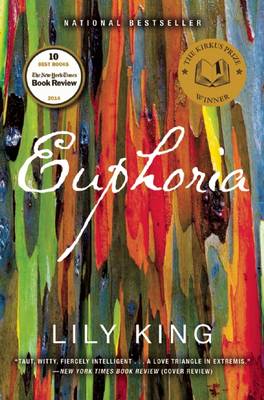Reviewed by jamiereadthis on
There’s a great book in here somewhere, but every time I thought we might get there, I was left baffled by King’s choices. It’s told from such a remove despite being (mostly) first person. Everything to do with the tribe(s) only exists for Nell/Fen/Bankson’s story. Fen (the abusive husband, natch) seems to be the only one with agency. King takes the fascinating, unconventional life of Mead and makes it as bland and conventional as possible. And the ending planted my forehead directly in my palm. Instead of reflecting real life, it’s as overwrought and cliched as a made-for-tv movie. And I’m left saying, WHY?
It looks like I’m in the minority, but truly, I’d rather read nonfiction about Mead than microwaved leftovers. It wasn’t a bad read, there’s just so much wasted potential. Ah, what could have been.
Reading updates
- Started reading
- Finished reading
- 6 April, 2018: Reviewed
